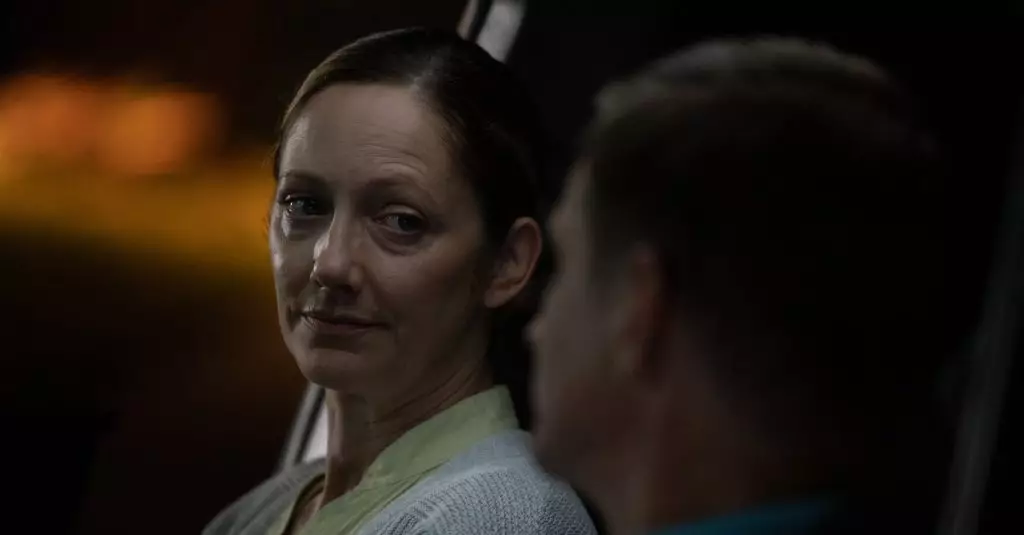Michael Shannon, best known for his powerful performances, steps into the director’s chair with “Eric Larue,” a poignant drama that explores the complexities of grief and faith following an unimaginable tragedy. Set to be released in theaters on April 4, this film marks an important milestone in Shannon’s career, showcasing his ability to convey deep emotional narratives while also managing a stellar cast that brings the story to life. The film is inspired by Brett Neveu’s acclaimed 2002 play, which adds a heart-wrenching depth to its cinematic adaptation.
The essence of “Eric Larue” lies in the contrasting journeys of its protagonists, Janice and her husband. Judy Greer plays Janice, who finds herself engulfed in an emotional fog after her son commits a horrific act by murdering three classmates. This tragedy sets the stage for her intense struggle, as she grapples with her rage, despair, and a sense of betrayal. In stark contrast, her husband, portrayed by Alexander Skarsgård, seeks solace within the embrace of a new church community. This division in their responses to grief underscores the disparate ways individuals cope with tragedy, revealing the film’s exploration of faith as both a source of healing and a point of contention.
One of the most striking aspects of “Eric Larue” is its engagement with the theme of healing in the face of devastating consequences. Shannon notes that the film attempts to address the broader societal issue of gun violence in schools—an increasingly relevant topic that resonates deeply with audiences. The film doesn’t dwell merely on the act of violence, but instead, it delves into the resultant emotional and spiritual fallout that reverberates through families and communities. Shannon’s aspiration for “Eric Larue” is to prompt a dialogue around healing, encouraging viewers to consider how they process pain and despair in a world seemingly steeped in violence.
Magnolia Pictures, known for its commitment to independent films that feature strong narratives, has secured North American distribution rights for “Eric Larue.” Shannon’s ability to attract a top-tier cast—including Alison Pill, Tracy Letts, Paul Sparks, and Annie Parisse—reflects his credibility and vision as a filmmaker. The film is produced by a team including Sarah Green and Karl Hartman, and Shannon’s frequent collaborator, Jeff Nichols, serves as an executive producer. Their collective expertise promises to elevate “Eric Larue” to more than simply a narrative about tragedy; it aspires to be an important commentary on the cultural and emotional landscapes surrounding gun violence.
As “Eric Larue” approaches its theatrical release, anticipation builds for what is sure to be a powerful exploration of grief, faith, and community. By tapping into personal stories amidst societal crises, Michael Shannon’s directorial debut aims to resonate not only as a film but as a necessary reminder of the deeper conversations we must engage in regarding healing and resilience. With its roots in a play and its blossoming into a film, “Eric Larue” promises to be a significant addition to contemporary cinema that invites viewers to reflect on their own experiences with loss and the paths they take toward healing.

